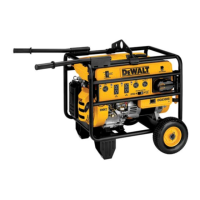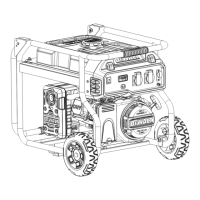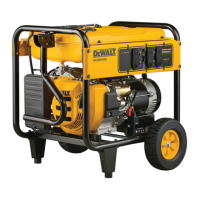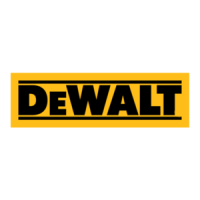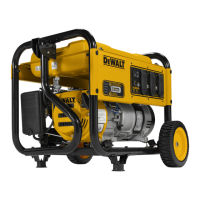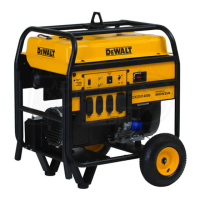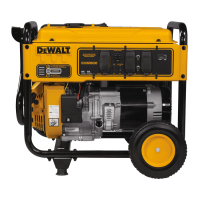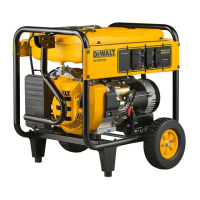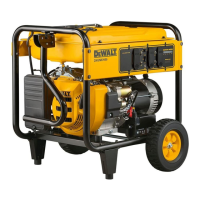• Unattendedoperationof
this product could result in
personal injury or property
damage. To reduce the risk
of fire, do not allow the
engine to operate
unattended.
• Alwaysremaininattendance
with the engine when it is
operating.
DANGER: RISK OF EXPLOSION OR FIRE
WHAT CAN HAPPEN HOW TO PREVENT IT
• Spilledgasolineandit’svapors
can be come ignited from
sparks from smoking products,
electrical arcing, exhaust,
flame, gas es and hot engine
components such as the muf-
fler.
• Shutoffengineandallowitto
cool before removing cap and
adding fuel to the tank.
• Usecareinfillingtanktoavoid
spill ing fuel. Make sure the cap
is secure and move unit away
from fueling area before start-
ing en gine.
• Heatwillexpandfuelinthe
tank which could result in spill-
age and pos si ble fire explo-
sion.
• Keepmaximumfuellevel
below the shoulders on the
debris screen
to allow for
expansion.
• Combustiblematerials
which come into contact
with hot generator parts
canbecomeignited.
• Addfueloutdoorsinawell
ventilated area. Make sure
there are no sources of
ignition, such as smoking
products near refueling
location.
• Operategeneratorinaclean,
dry, well ventilated area a
minimum of 48" (1.2 m) from
any building, object or wall.
Do not operate unit indoors or
in any confined area.
• Operategeneratorinanopen
area away from dry brush,
weeds or other combustible
materials
.
• Improperlystoredfuelcould
lead to acciden tal ignition. Fuel
im prop er ly secured could get
into the hands of children or
oth er un qual i fied persons.
• StorefuelinanOSHA-
approved con tain er, in a
se cure location away from
work area.
• Enginespeedhasbeenfac-
tory set to provide safe opera-
tion. Tampering with the engine
speed adjustment could result
in overheating of attachments
and could cause a fire.
• Neverattemptto"speed-up"
the engine to obtain more
performance. Both the output
voltage and frequency will be
thrown out of standard by this
practice, endangering attach-
ments and the user.
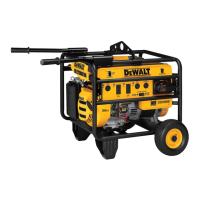
